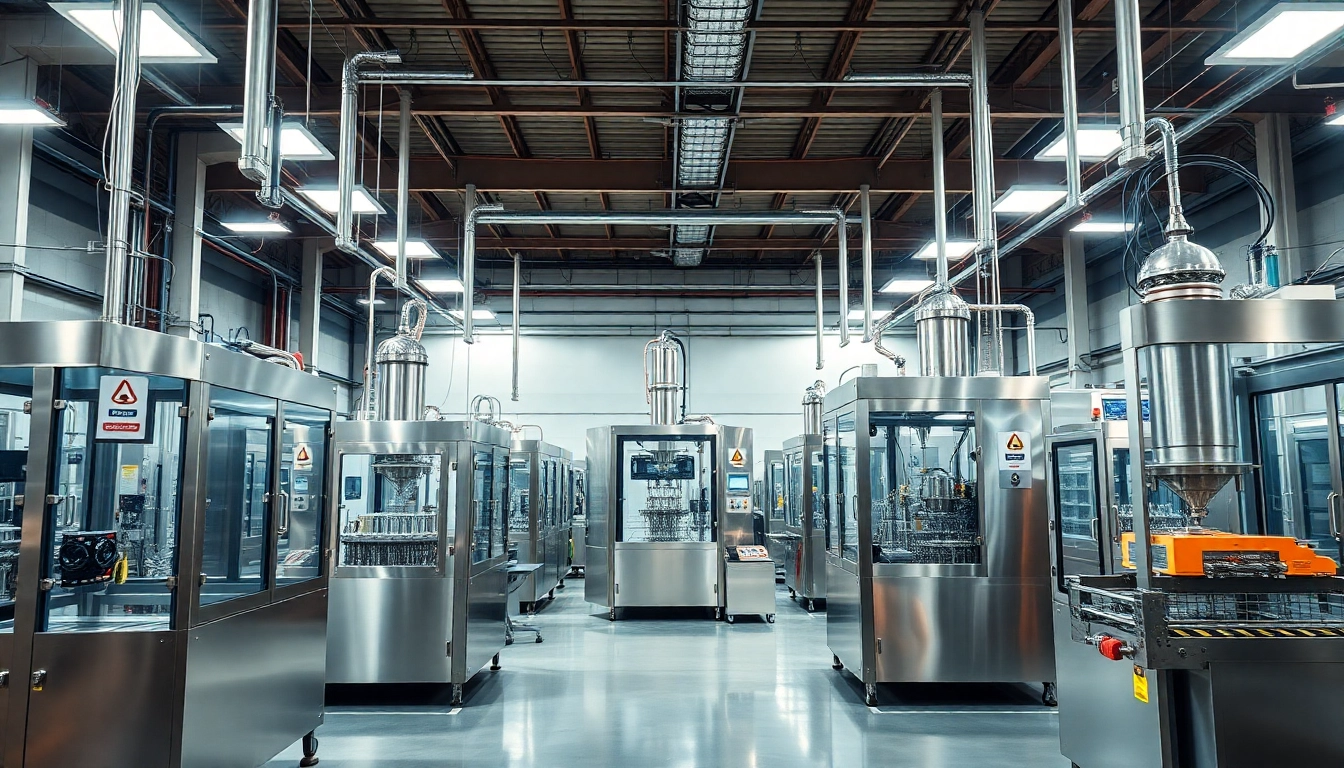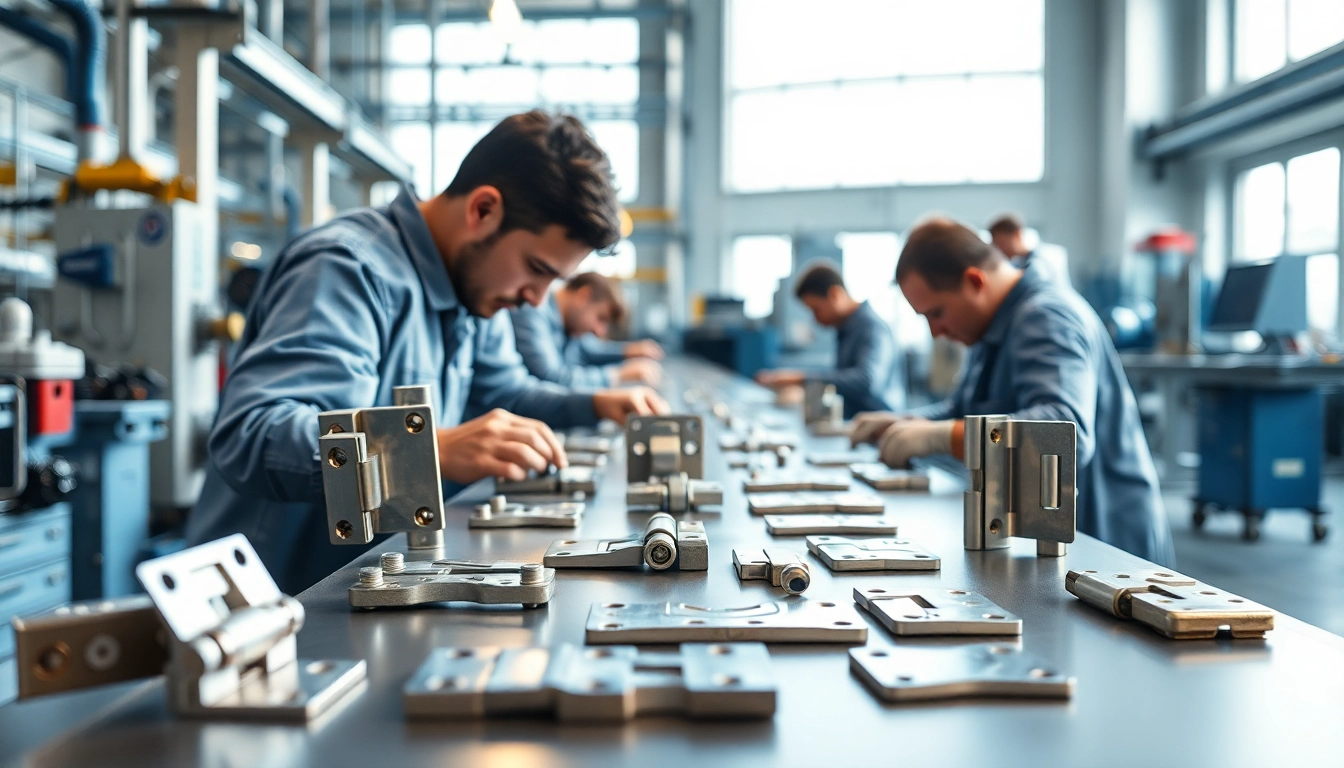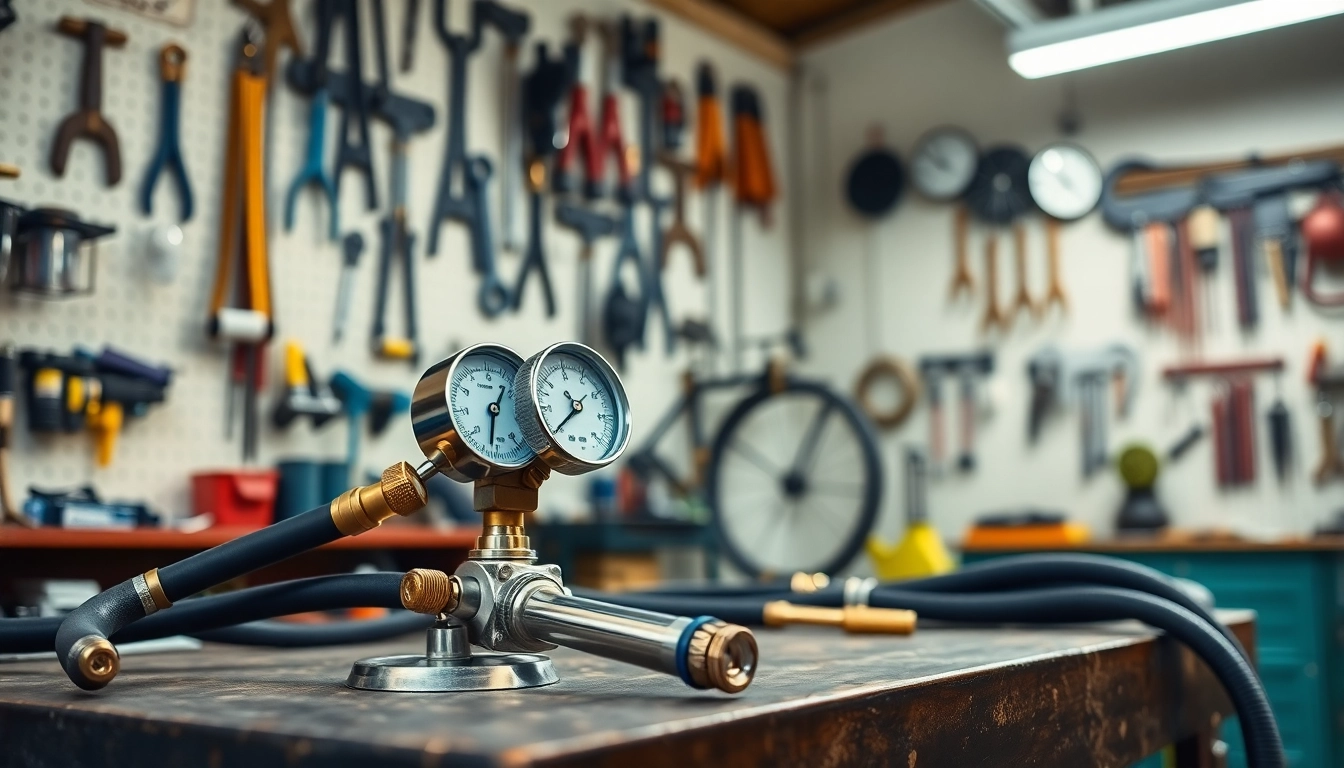Understanding Filling Machines
What is a Filling Machine?
A filling machine is a pivotal device used in various industries, primarily focused on the automation of filling containers with liquids, powders, or granular materials. These machines are designed to ensure consistent volume, precise measurements, and efficient production processes. Whether it’s a beverage, pharmaceutical product, or chemical substance, filling machines provide the capacity to fill large orders with speed and accuracy.
At its core, a filling machine streamlines manufacturing processes, mitigating labor costs and human error while enhancing productivity. Thanks to advancements in technology, modern filling machines can be highly automated, offering features such as programmable settings, real-time monitoring, and integration with packaging solutions, all of which drive efficiency and quality across the production line. For those interested in diving deeper into the realm of quality automation, Filling Machine Manufacturers provide vital resources and solutions.
Types of Filling Machines
Filling machines can be categorized based on a variety of factors including their operating principles, the nature of the materials they handle, and the types of containers they fill. Here are some of the primary types:
- Volumetric Fillers: These machines measure out a specific volume of product for each container, making them suitable for liquids and free-flowing materials.
- Piston Fillers: Utilizing a piston mechanism, these machines are highly accurate and can handle both thin and thick liquids, making them perfect for sauces and creams.
- Gravity Fillers: Operating on the principle of gravity, these are typically used for filling low-viscosity liquids into open containers, such as wine or water bottles.
- Pressure Fillers: These machines force liquid into a container under pressure, suitable for thicker liquids.
- Aseptic Fillers: Designed for sensitive products that require a sterile environment, ensuring the preservation of quality and safety.
- Net Weight Fillers: These systems weigh the product before filling, guaranteeing that each container receives the exact weight specified.
Applications Across Industries
The versatility of filling machines allows them to be employed across diverse sectors:
- Food and Beverage: From bottling soft drinks to filling jars with jams, filling machines in this industry require adherence to safety and sanitation standards.
- Pharmaceutical: High precision is paramount when filling medicinal solutions, tablets, and powders, making specialized filling machines essential.
- Chemical: Used for filling oils, adhesives, and cleaning agents, these machines must withstand aggressive materials and potentially hazardous environments.
- Cosmetics: Precision in volume and product integrity is crucial when filling lotions, serums, and gels.
Choosing the Right Filling Machine Manufacturer
Key Factors to Consider
When selecting a manufacturer for filling machines, consider the following factors:
- Product Range: Ensure the manufacturer provides a variety of machines suitable for your specific needs, whether for liquids, powders, or other materials.
- Customization Options: Depending on your production requirements, look for manufacturers that offer customizable solutions tailored to your operations.
- Technical Support and Service: A reliable manufacturer should provide comprehensive support, including installation, maintenance, and troubleshooting.
- Innovation and Technology: Assess the manufacturer’s commitment to innovation, particularly in designing machines equipped with the latest technology.
- Cost vs. Quality: Balance your budget constraints with the quality and reliability of the equipment provided.
Evaluating Manufacturer Reputation
To make a well-informed decision about your filling machine supplier, research their reputation in the industry.
- Customer Testimonials: Seek reviews from prior clients to gauge satisfaction levels and performance outcomes.
- Industry Experience: Manufacturers with extensive experience often have a better understanding of market demands and operational efficiencies.
- Certifications: Look for certifications that affirm the quality of machines, such as ISO and industry-specific accreditations.
- Successful Case Studies: Examine the manufacturer’s past projects to identify successful deployments and innovation in solutions.
Top Filling Machine Manufacturers in the USA
Some of the leading filling machine manufacturers in the United States include:
- Accutek Packaging Equipment: Known for a variety of machines suitable for many industries.
- Cozzoli Machine Company: Specializes in liquid filling and capping machinery.
- Volumetric Technologies: Offers a range of reliable bottle-filling solutions.
- Oden Machinery: Renowned for high-quality filling systems across different sectors.
- E-PAK Machinery: Provides broad options for liquid filling, capping, and labeling.
Latest Trends in Filling Machinery
Automation and Smart Technology
The transition towards automation has become a fundamental trend among filling machine manufacturers. Automated filling lines can significantly enhance productivity by reducing operational costs and providing consistent quality. Smart technology integrated into these machines allows for:
- Real-time Data Monitoring: Operators can track production metrics, identify bottlenecks, and adjust flows dynamically.
- Predictive Maintenance: Utilizing machine learning algorithms, manufacturers can predict when maintenance is needed, preventing downtime.
- Integration with Other Systems: Many modern filling machines can connect seamlessly with other manufacturing software, including ERP systems, to streamline overall operations.
Sustainability Practices
Environmental concerns are increasingly influencing the operation and design of filling machines. Manufacturers are adopting sustainable practices such as:
- Energy Efficiency: Enhancements to machine design to reduce energy consumption during operations.
- Reduction of Waste: Incorporating technology that minimizes spills and waste during the filling process.
- Use of Recyclable Materials: Designing machines with eco-friendly materials to lessen the environmental impact.
Customization Options for Businesses
The growing demand for customized solutions drives many filling machine manufacturers to offer tailored options accommodating unique production needs. Customization can include:
- Adjustable Fill Volumes: The flexibility to fill different container sizes without needing separate machines.
- Multiple Fill Modes: Options to switch between different filling methods based on product characteristics.
- Adaptable Design: Machines designed to integrate with existing production lines or fit specific facility requirements.
Common Challenges in Filling Production
Mitigating Downtime and Maintenance Issues
Facility downtime due to machine malfunctions can be costly. Effective strategies to mitigate these risks include:
- Regular Maintenance Checks: Scheduling consistent checks and upkeep to prevent issues from developing.
- Training Operators: Ensuring staff are trained on the correct operations and maintenance procedures for each machine.
- Implementing Monitoring Technology: Using sensors and IoT devices to continuously monitor machinery health and alert operators to potential issues.
Quality Control and Compliance
Adhering to industry regulations can pose challenges, but implementing robust quality control measures can ensure compliance:
- Calibration Processes: Regular calibration of machinery to ensure accuracy in filling processes.
- Quality Auditing: Conducting routine audits on production batches to verify they meet established standards.
- Documentation and Record-Keeping: Maintaining accurate records of production and quality checks for compliance with regulatory bodies.
Sourcing Parts and Support
Procurement of replacement parts can present a logistical challenge. To manage this effectively:
- Establishing Vendor Relationships: Build relationships with reliable suppliers that can provide quick access to needed parts.
- Inventory Management: Maintain a stock of high-demand spare parts to avert production halts.
- Logistics Planning: Develop plans for expediting shipping or repairs to minimize downtime.
Future of Filling Machines
Innovations on the Horizon
The future of filling technology looks promising with anticipated advances including:
- Artificial Intelligence: AI-driven systems could further optimize production schedules and machine operations.
- Robotic Integration: Enhanced collaboration with robotics will streamline filling processes, reducing labor costs while increasing accuracy.
- Smart Packaging: Integrating filling machines with smart packaging that can communicate inventory levels and freshness.
Impact of E-commerce on Filling Solutions
The rise of e-commerce has dramatically influenced filling solutions. Businesses must adapt to the increasing demand for faster and more flexible production.
- Short-run Production: The need for small batches and rapid changeover capabilities drives the innovation of more adaptable filling systems.
- Inventory Management: E-commerce companies require real-time tracking systems that align production with digital sales.
Preparing for Industry Changes
Organizations should consider a proactive approach to adapt to evolving industry trends:
- Continuous Learning: Encourage teams to stay updated on industry advancements through training and workshops.
- Investing in Technology: Consider investing in cutting-edge filling technology to maintain competitive advantage.
- Customer Feedback Integration: Utilizing feedback from customers to tailor services and offerings that align with market demands.



